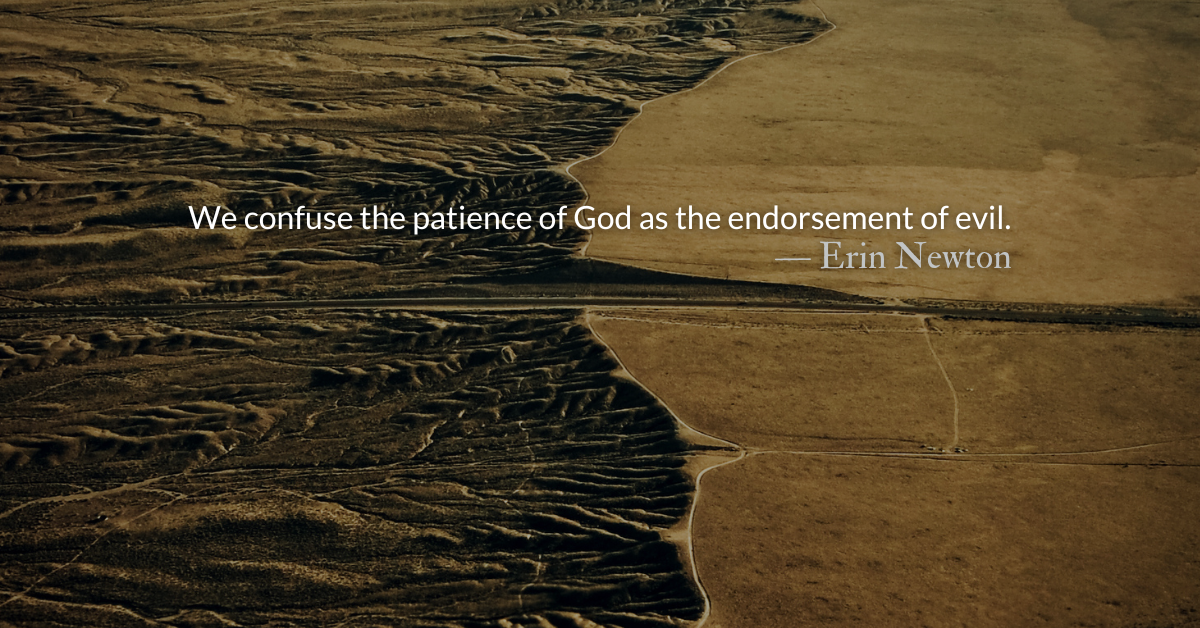Scripture Focus: Habakkuk 1.2
2 How long, Lord, must I call for help,
but you do not listen?
Or cry out to you, “Violence!”
but you do not save?
Mark 6.27
27 So he immediately sent an executioner with orders to bring John’s head. The man went, beheaded John in the prison…
Reflection: God, Can You Hear Me?
By Erin Newton
Recently, Beth Moore posted on Twitter, “Aren’t there times when you raise your face to the sky and say, Lord, do you care that you have nearly killed me??” The post gained quick responses of affirmation and personal anecdotes of others in pain. This honest reflection on suffering is how the book of Habakkuk opens.
The prophet looked at the culture around him and saw only violence, destruction, injustice, and strife. The heart of the prophet cried out to God. Was God deaf to his pain? The legal system which was meant to bring wholeness, peace, and justice was perverted and paralyzed. It was a world much like our society today.
The Lord answered the prophet with a forecast of something unpredictable. The future was going to continue to be painful. What dreadful news! The prophet struggled to make sense of it all. Tolerating evil was the antithesis to the character of God.
This perplexing tolerance of injustice can be felt at the individual level. In the gospels, John the Baptist is imprisoned for his criticism of Herod. In prison, he likely doubted if he had risked his life for false hope. He sent his messengers to inquire of Jesus, “Are you the Messiah?” Jesus responds with tales of the miraculous healings that had taken place, fulfillments of the messianic prophecies. Jesus proclaimed his omnipotence. He was the Messiah. But John remained in prison. The Lord, all-powerful and all-knowing, healed the sick but allowed his friend to be bound by an oppressor. His answer was also a future of more pain.
In her book, Gold by Moonlight, Amy Carmichael reflects on the question John the Baptist sent to Jesus and Jesus’ answer in return. “That is the word for you. The Father trusts His broken child to trust.” It is a hard word to hear. We want God to answer with pleasant words. We call out to the Good Shepherd hoping that he will let us rest beside still waters. We despair and cry out, “Are you really God?”
It can feel like God is slow to respond. We confuse the patience of God as the endorsement of evil. Habakkuk struggled with God’s answer because it didn’t seem to fit his character. In the end, he will praise God and trust that God is still good.
When we are broken, may our faith sustain us as we trust in his timing.
Divine Hours Prayer: The Refrain for the Morning Lessons
I will bear witness that the Lord is righteous; I will praise the Name of the Lord Most High. — Psalm 7.18
Today’s Readings
Habakkuk (Listen – 2:39)
Mark 6 (Listen – 7:23)
Read more about Ordinary Measure of Faithfulness
The Shunammite woman is a tale of the slow, quiet, and ordinary walk of faithfulness.
Read more about Occupation of Meditation
Meditation and occupation with God’s Word can bring us peace in our frustrations, and give us power to oppose evil and help the suffering in this world.






